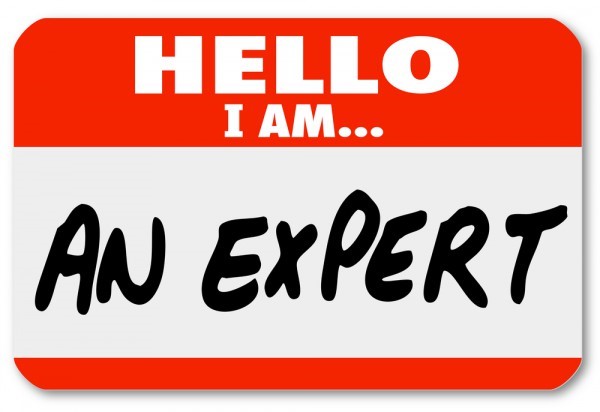BLOG
Admissibility of Expert Evidence
Cory Wilson is a criminal lawyer, serving Calgary, Okotoks, Airdrie, Strathmore, Cochrane and Canmore.

As trials become more complex, expert opinion evidence has increasingly become an issue. More and more, trial judges are having to warn themselves against falling into the trap of turning trials into a battle of the experts. Most troubling about the increased use of experts is the hiring of “hired guns” to support one parties claims. The issue of these hired guns, often whose livelihoods depend on making conclusions that support their client’s version of events, is that it becomes increasingly difficult for courts to determine whether the expert is upholding their duty of impartiality to the court and giving unbiased testimony.
In Inman v Abbott, the Supreme Court of Canada addressed this concern and outlined the test expert evidence must meet to be admissible.
Background
The case involved a professional negligence action by shareholders of a company against their former auditors. The shareholders alleged that their new auditors discovered significant errors by the former auditors which amounted to professional negligence. The shareholders hired an expert witness, a forensic accountant who was a partner at the new auditor’s firm- and used her affidavit as expert opinion evidence. The former auditors applied to strike out the affidavit on the basis that given her employment, there was no way she was impartial. The motions judge agreed and struck the affidavit. The Court of Appeal, disagreed with the motions judge. The Supreme Court of Canada agreed with the Court of Appeal and the found that there was a lack of evidence to suggest that the expert wouldn’t give impartial evidence.
Issues
The Court asked two main questions:
- Should the elements of the expert’s duty to the court go to the admissibility of the evidence rather than simply to its weight? And
- If so, is there a threshold admissibility requirement in relation to independence and impartiality?
Decision
The Supreme Court answered both questions in the affirmative and found that:
24 [A] proposed expert’s independence and impartiality goes to admissibility and not simply to weight and there is a threshold admissibility requirement in relation to this duty. Once that threshold is met, remaining concerns about the expert’s compliance with his or her duty should be considered as part of the overall cost-benefit analysis which the judge conducts to carry out his or her gatekeeping role.
In its decision, the Court essentially upheld the test from R. v. Abbey, 2009 ONCA 624 [Abbey] by clarifying the additional step to the test for admissibility found in R. v. Mohan, [1994] 2 SCR 9 [Mohan]. The Court held that the appropriate threshold for admissibility flows from the expert’s duty to the court to be fair, objective and non-partisan. Hence, absent any challenges, once an expert accepts their duty to the court, the threshold should be considered to be met. At this point, the burden shifts to the party opposing the admission of the evidence to “show that there is a realistic concern that the expert’s evidence should not be received because the expert is unable and/or unwilling to comply with that duty” (para. 48).
If an opponent shows that there is such a “realistic concern”, the party proposing to enter the evidence must then establish on a balance of probabilities that the expert witness is in fact able to comply with their duty to the court. If the proponent fails to do so, then the impugned expert evidence should be excluded.
The Court added this analysis to the “qualified expert” or fourth step of the Mohan test. As a result, the test for admissibility of expert evidence becomes a two-stage inquiry as follows:
(1) Threshold Admissibility Test
- Relevant
- Necessary to assist the trier of fact
- Does not trigger any exclusionary rules
- Given by a properly qualified expert.
- Does the expert attest or recognize the duty owed to the court to provide fair, objective and non-partisan evidence? (A simple affirmation will usually suffice.)
- If an opponent challenges the expert, the burden is on the opposing party to show that there is a “realistic concern” that the expert is unable and/or unwilling to comply with that duty.
- If unsuccessful, the expert evidence is admissible.
- If successful, the burden is then on the proponent of the expert evidence to prove on a balance of probabilities that the expert is, in fact, able and willing to fulfill the duty.
(2) Gatekeeping Exclusionary Discretion (Cost-Benefit Analysis)
- At this stage, the judge must take concerns about the expert’s independence and impartiality into account in weighing the evidence.
- Judge must be satisfied that the potential helpfulness of the evidence is not outweighed by the risk of the dangers materializing that are associated with expert evidence.
Based on the above analysis, the Court dismissed the appeal due to its finding that there was a lack of evidence to suggest that the shareholders’ expert witness was not willing and able to provide impartial expert opinion evidence.
The Court held that a mere employment relationship with the party calling the evidence will be “insufficient” to raise a realistic concern regarding the expert’s impartiality. However, a direct financial interest in the outcome of the litigation or a familial relationship with the expert may be more concerning and could amount to a “realistic concern”. Nevertheless, the Court emphasized that the exclusion of evidence should only occur in “very clear cases” suggesting that there is a high burden on the party opposing the expert evidence. Anything short of “very clear” evidence of partiality will result in the evidence being merely weighed accordingly in judge’s cost-benefit analysis, as opposed to excluded entirely.
Cory Wilson is a criminal defence lawyer based in Calgary. If you have been charged with a criminal offence or are a suspect in a criminal investigation, call today for a free, no obligation consultation.